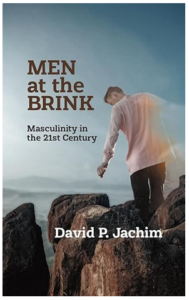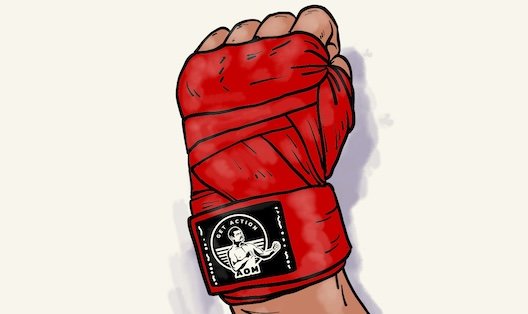[ad_1]
A Review of Men at the Verge, Maleness in the 21 st Century
At Males’s Health and wellness Network, we constantly seek to highlight discussions that matter– especially those that influence the well-being and assumption of men in society.
One such discussion is masculinity itself: its past, present, and progressing future.
Dr. David P. Jachim’s brand-new publication, Male at the Edge, Manliness in the 21 st Century , takes an in-depth consider these issues, tackling the complicated interaction in between history, mental health, and social narratives bordering maleness today.
The Structures of Masculinity
Dr. Jachim comes close to masculinity from several angles, weaving together mythology, psychology, and sociocultural fads. His book checks out the timeless foundations of masculinity, discovering historical and mythological depictions of the male identity. These photos, typically representing strength, management, and strength, have actually long formed the assumptions put on males.
Nonetheless, as Jachim points out, the assumption of masculinity has gone through substantial transformations for many years.
As he discovers the origins of masculinity, Jachim clarifies exactly how very early societal frameworks formed male functions. He argues that, while conventional manliness has actually usually been corresponded with stoicism and dominance, its core essence has always been more nuanced, including task, mentorship, and emotional strength.
The Duty of Mental Health And Wellness in Masculinity
Among one of the most engaging facets of Male at the Brink is its critique of exactly how masculinity is dealt with in psychological health study. The book highlights the skewed lens whereby men’s emotional battles are typically watched, noting that contemporary psychological health and wellness discussions frequently pathologize maleness as opposed to seek to recognize it.
Jachim observes that many emotional frameworks have either disregarded male-specific psychological health needs or dismissed them as symptoms of “toxic manliness.” This perspective, he argues, produces barriers for males looking for aid, as they may feel alienated by a system that falls short to validate their experiences.
This remarkable book discovers the very early origins of the manly character, the skewed sight of the masculine in mental health and wellness research, as well as the influence of contemporary taglines such as ‘patriarchy’ and ‘toxic maleness’.
By incorporating professional vignettes, Jachim highlights exactly how these predispositions manifest in real-world treatment settings. He stresses the significance of providing men with mental health and wellness support that does not undermine their feeling of self yet instead assists them browse their feelings within the framework of their manliness.
Masculinity in a Transforming Cultural Landscape
Jachim doesn’t avoid debatable topics, such as the impact of cultural narratives on manliness. He analyzes exactly how contemporary discussion– especially around terms like “patriarchy” and “poisonous masculinity”– has shaped public assumptions of males. While recognizing that aspects of traditional manliness can be unsafe, he says that the broad application of these terms typically causes unfair generalizations that reject the battles men deal with.
This part of guide is specifically relevant in today’s cultural environment, where manliness is regularly discussed in political, scholastic, and social rounds. Jachim warns that lowering masculinity to a monolithic idea danger forgeting the variety of male experiences. Instead, he supports for an extra balanced approach that acknowledges both the toughness and obstacles of manliness in the modern-day globe.
In numerous methods, this publication is a detailed analysis of exactly how males are seen, not only in the consulting room however also in the culture at large. It is a sensible overview to recognizing the predicaments that males encounter today, and it gives paths for helping males reach their complete gendered potential.
The Future of Manliness: A Call for Empathy and Understanding
Ultimately, Guy at the Brink acts as both an expedition and a phone call to activity. Jachim urges readers, whether mental health specialists or the general public– to embrace an extra empathetic and nuanced understanding of manliness. He suggests that guys need to not be forced to abandon their identification but instead be supported in establishing healthier expressions of masculinity that straighten with their personal and societal functions.
This message aligns very closely with the mission of Guy’s Health and wellness Network, which advocates for a thorough and compassionate strategy to men’s health. Identifying the special challenges that men encounter– ranging from psychological health has a hard time to social assumptions– permits more reliable support systems that empower men as opposed to estrange them.
Why This Book Issues
For those bought the guys’s wellness motion, Guy at the Edge supplies a crucial viewpoint on the progressing discourse around manliness. It links the space between background, mental wellness, and social evaluation, using sensible understandings for those who intend to much better comprehend the challenges encountering males today.
Dr. Jachim’s work highlights the importance of fostering discussions that relocate past blame and instead concentrate on positive remedies. Whether you’re a mental health and wellness specialist, a supporter for men’s well-being, or just a person interested in the topic, this book acts as an invaluable resource.
At Males’s Health Network, our company believe that discussions like these are crucial for progression. By advertising literary works that urges thoughtful conversation and vital evaluation, we want to continue fostering an extra informed and helpful method to males’s wellness and identification.
If you’re interested in discovering more concerning Male at the Edge, Masculinity in the 21 st Century , we very recommend adding it to your reading listing. Allow’s continue the conversation– since recognizing manliness in all its intricacies is essential to building a healthier future for all guys.

Regarding David Jachim
David Jachim, PhD is a board-certified psychoanalyst in Seattle, Washington. He has released short articles and essays in the areas of psychological health and wellness treatment, mental wellness training and political aspects of psychological health and wellness.
[ad_2]
Resource link


